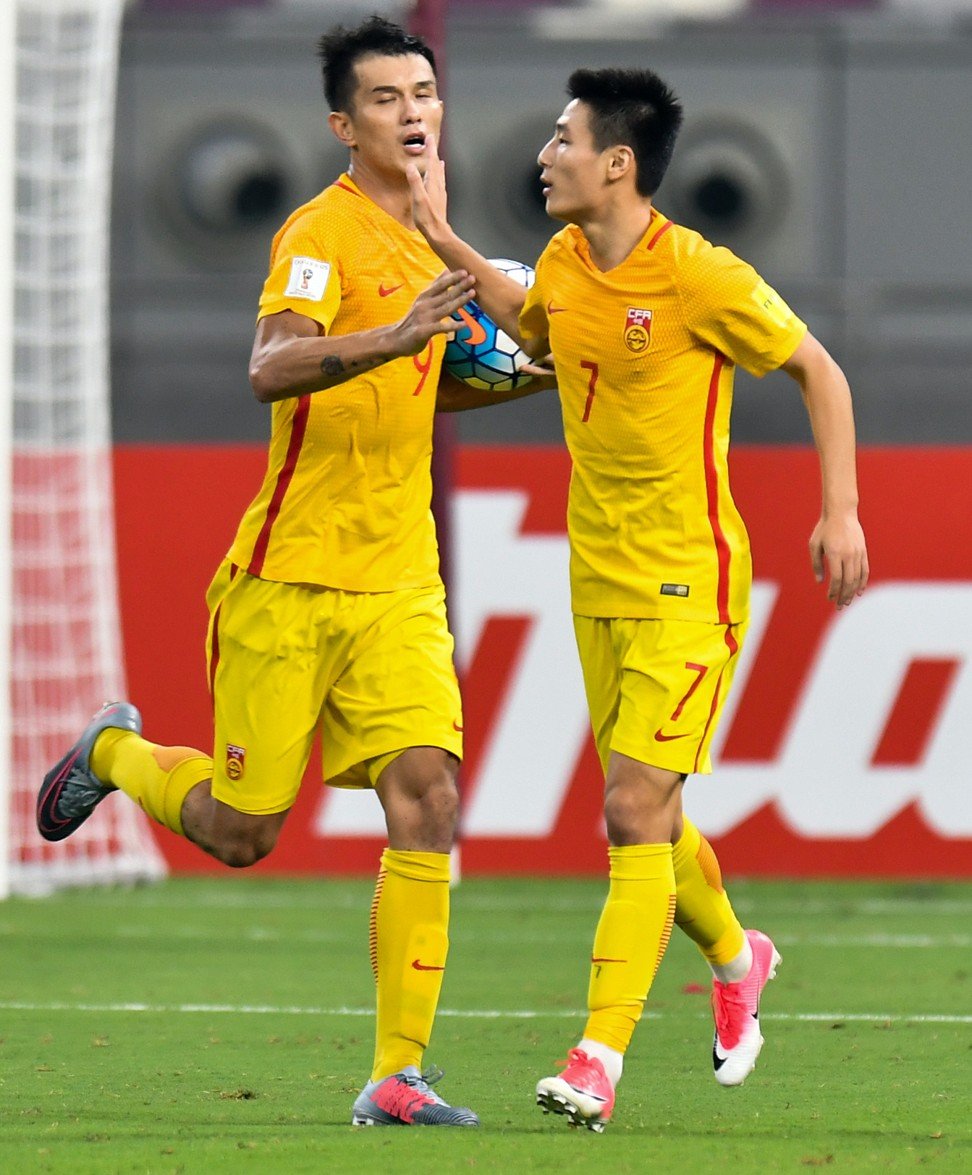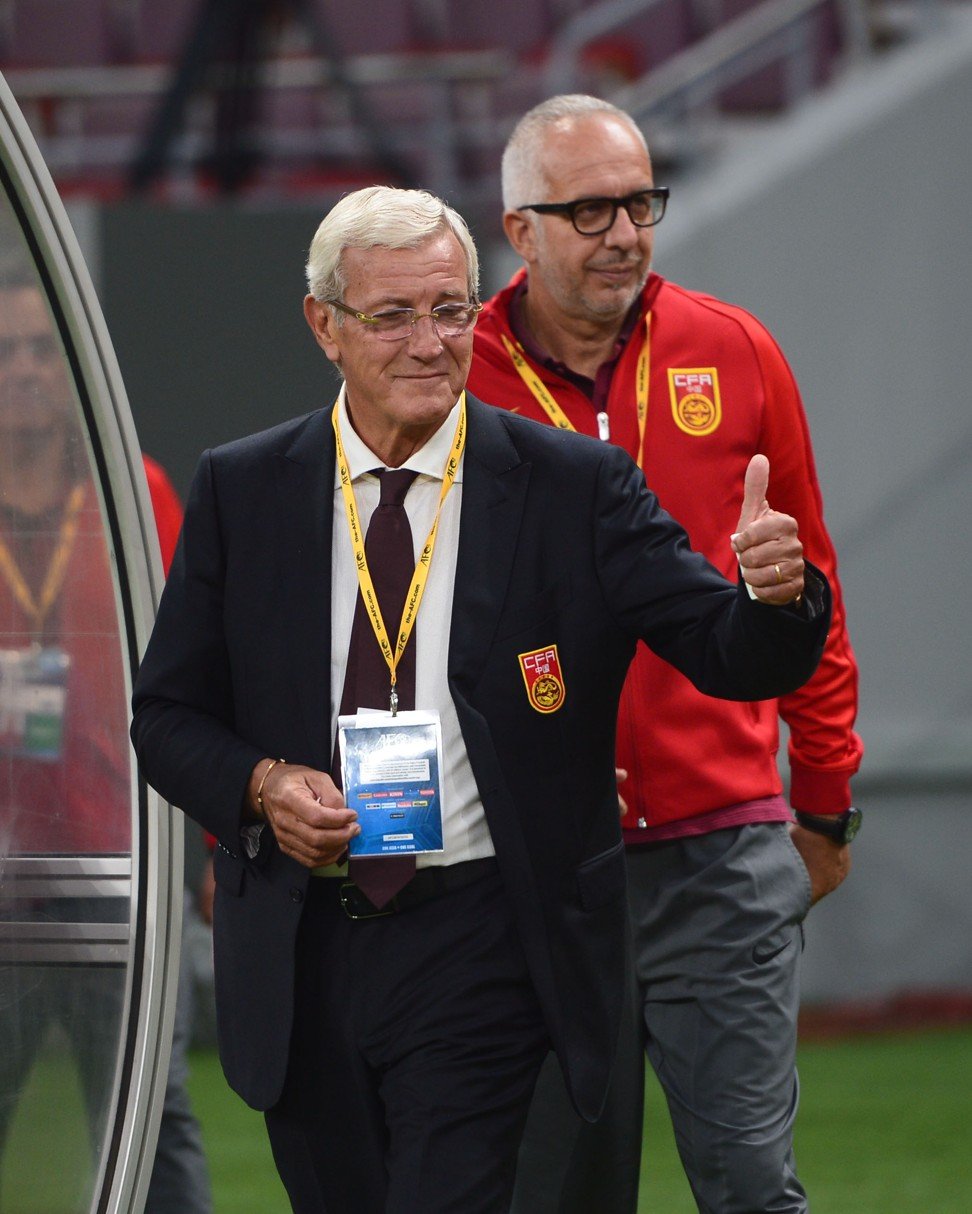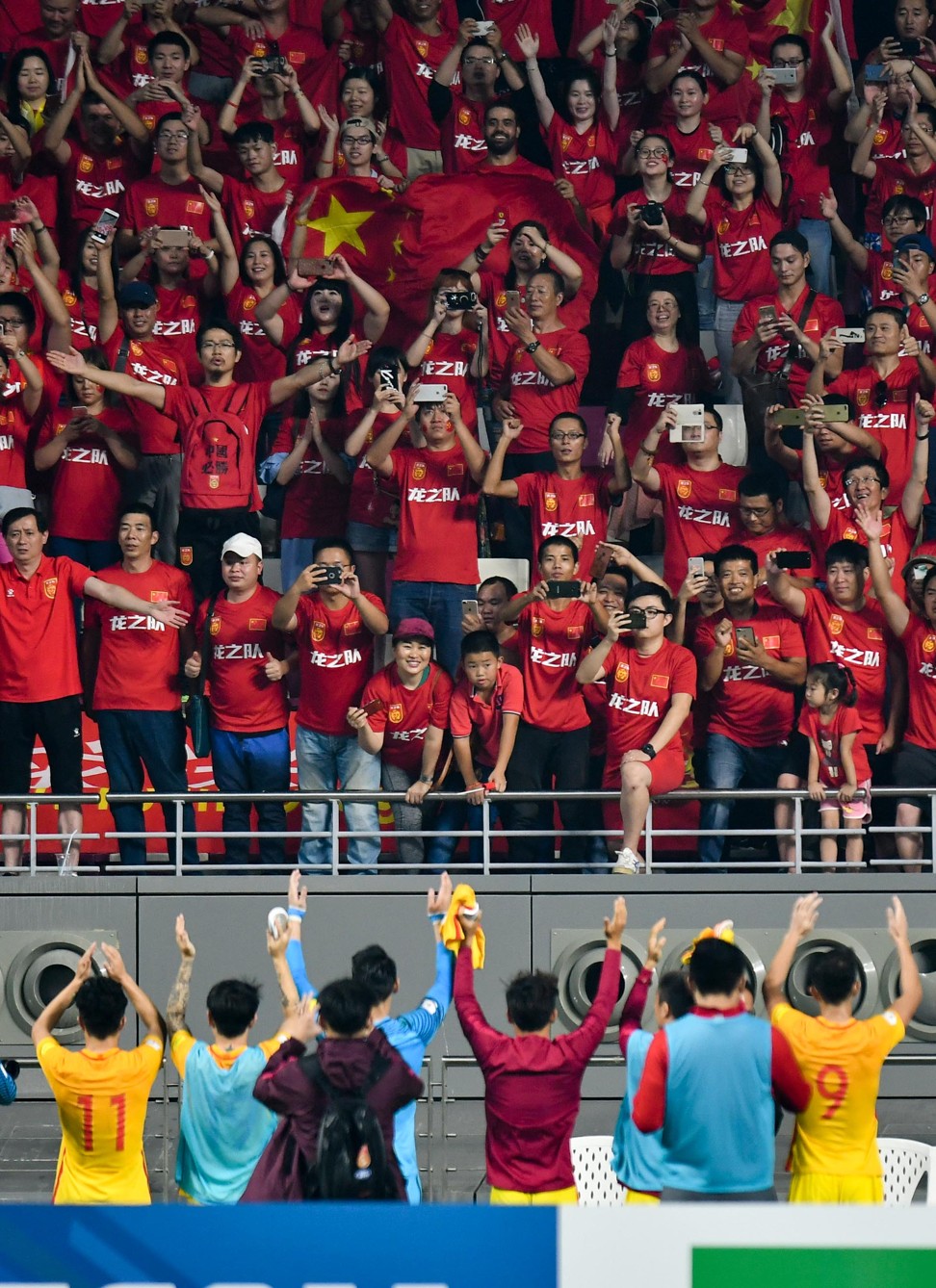
Why China’s latest World Cup failure might actually be a high point for a team requiring massive rebuild
With an ageing team, a lack of young talent coming through and few creative players, the next qualifying campaign for the World Cup could be even tougher

“The nation’s pursuit of a soccer renaissance is headed in the right direction,” declared China Daily after the nation’s 10th failed World Cup qualifying campaign from 11 attempts.
Perhaps we shouldn’t pay too much attention to an article which reported that China captain Zheng Zhi had scored a penalty to win last week’s match against Qatar: he had been sent off before Wu Lei scored the winner, which was not a penalty. Minor details.
But it is valid to wonder if finishing second-bottom in the group might actually be a high point rather a “renaissance”. (And forget that “renaissance” implies a previous golden age).
China were a little unlucky not to make it, after Italian World Cup-winning coach Marcello Lippi inspired a remarkable turnaround. The country’s media rued the fact that he had not been in charge from the start of the campaign, but celebrated China “regaining face” in the eyes of a world that has negligible interest in China’s football team.
But the horizon is now cloudy: the average age of the first XI against Qatar was more than 30, with 26-year-old Zhang Xizhe the youngest. Wu, nearly 26, is by far China’s best player in the younger bracket and after him there ain’t much else.
“Of course you need to look forward and plan accordingly towards 2022, where some of the current players might be too old – but this also [gives] new players to get the chance to show their value,” insists Mads Davidsen, technical director of Shanghai SIPG.
“Talents need to be played before you can judge them,” he added.
“I have just attended the National Games of China in Tianjin, where I was happy to see our Shanghai SIPG players perform well and win the [under-20] tournament, but you also have Zhang Yuning playing abroad and perhaps Lin Liangming, who I know from my time at Guangzhou R&F, also playing abroad right now.”
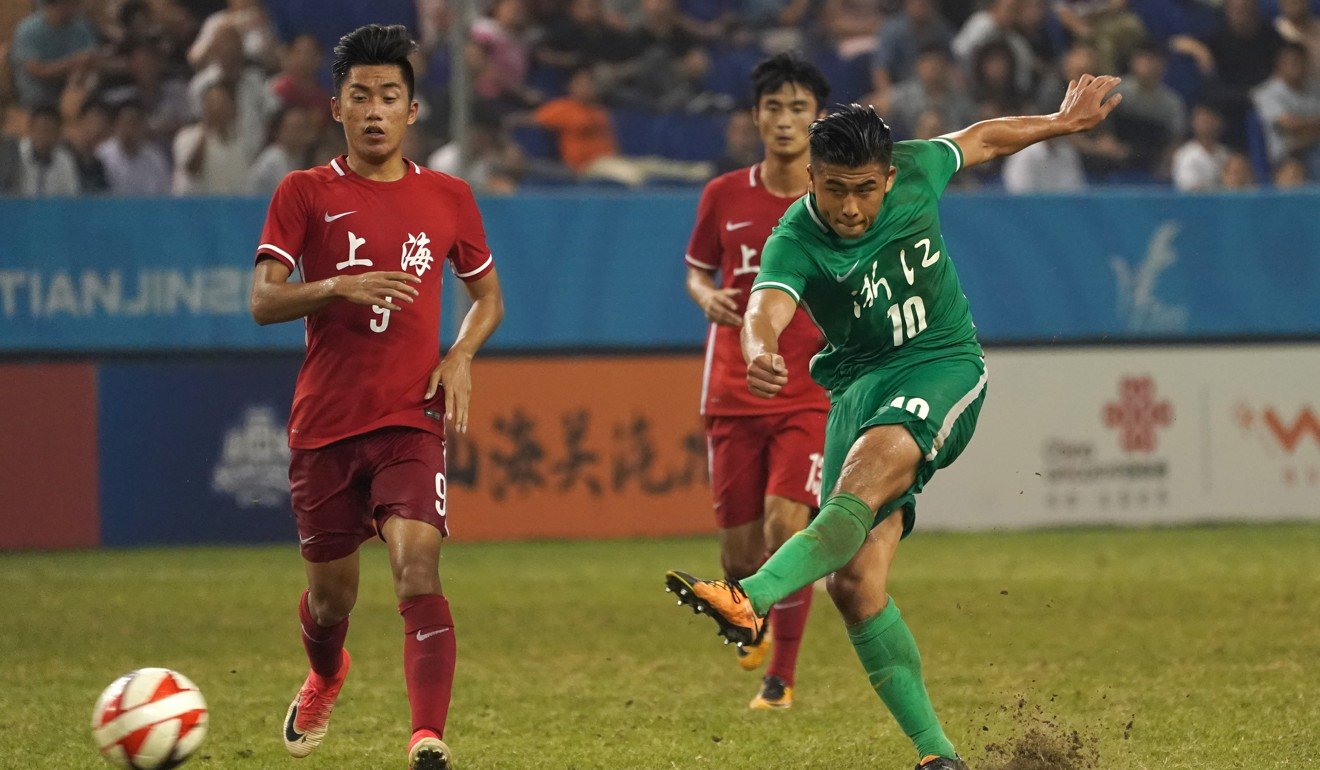
Zhang, 20, is the great hope having had modest success in the Netherlands. Chinese-owned English Premier League side West Bromwich Albion bought him this summer, but immediately loaned him to Werder Bremen in Germany. He is not in consideration for Werder’s first team and apparently can’t play for their under-23s because of German labour laws.
He was dropped by Lippi for the final qualification games after Werder supposedly barred him from leaving in time for the required deadline. They happily waved him off to play for Zhejiang at the National Games though.
Lin, also 20, is in theory a Real Madrid player, but is on loan to Almeria B in the Spanish third division, so maybe great things should not be expected of him just yet.
China haven’t reached the Fifa U-20 World Cup since 2005, and that group was the last to have got further than the quarter-finals at the Asian U-19 Championship.
Attempts are being made to improve youth development, with supposed plans to build 40,000 football schools by 2020, but that’s not going to be much use for Lippi or whoever is in charge of the next World Cup campaign.
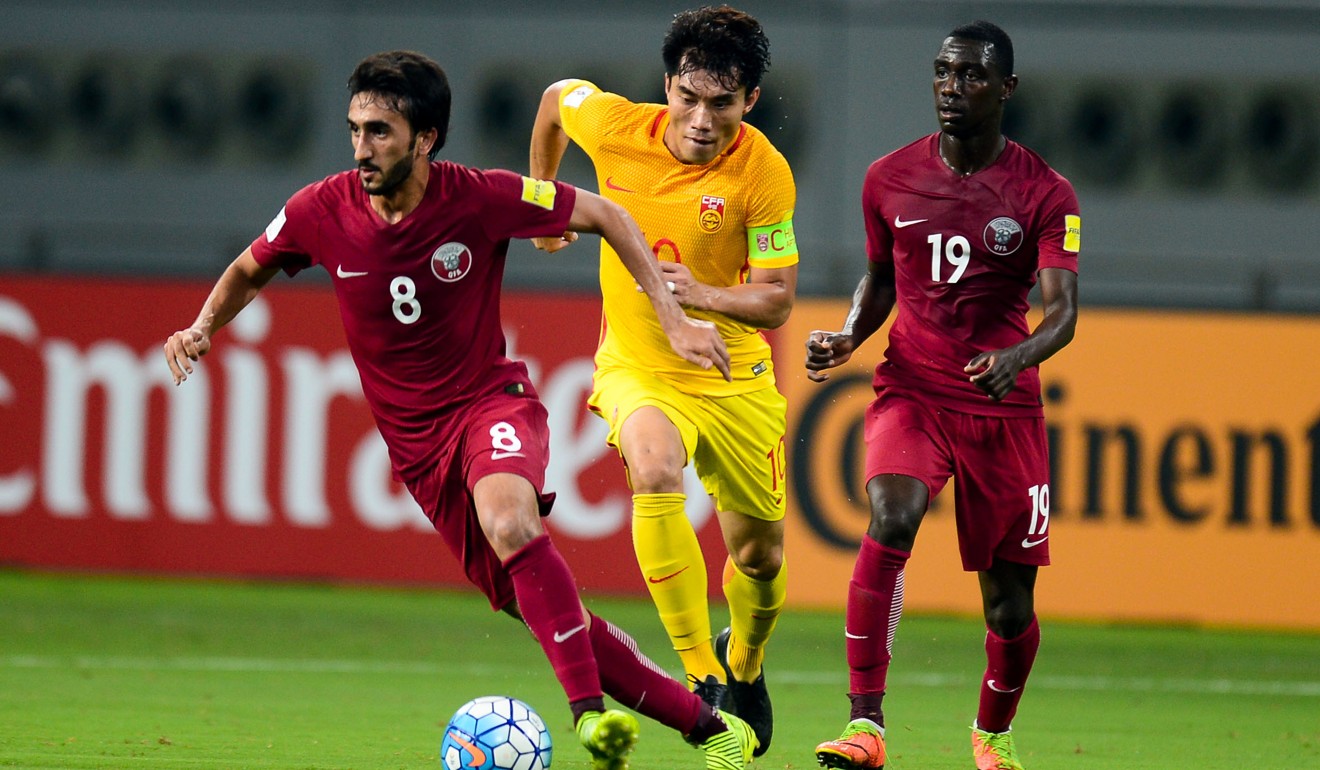
The Chinese Football Association – seemingly under the strong “recommendation” of government officials desperate to please football-mad president Xi Jinping – introduced ill-conceived new rules this season to force clubs to pick under-23 players in the Chinese Super League.
As a result, some clubs start the requisite youngster then substitute him almost immediately: one of SIPG’s players, Zhang Huahen, has lasted an average of 15 minutes in the 12 matches he’s started. This might not be the best way to improve technique, fitness or confidence.
And goals might be harder to find for China than fresh blood. Since essentially all the scorers and creators in the CSL are expensive foreigners, Chinese attackers hardly get a look-in. Of the top 25 goal scorers only Wu, Yu Hunchao and Gao Lin are Chinese, with only attacking midfielder Wu in double figures.
“I have to move players from other positions to be a centre-forward,” said Lippi last month. “The reason is simple too: clubs can play three foreign players and they like buying forwards.”
New restrictions on foreigners may help, but not in the near future.
Davidsen reckons China still needs at least 15 years to have a competitive team – but agrees that keeping 69-year-old Lippi is vital short-term.
He is under contract until 2019, but you feel he might just be tempted to stay if that reported €50 million deal were extended.
“He has organised the team very well, just as he did with Guangzhou Evergrande,” said Davidsen.
“I know and speak to Marcello now and then and I saw him on the training ground recently – his passion and the fire is still in his eyes, so I hope he can take another turn [at qualifying].”
But despite Lippi’s talents, hosting the World Cup still looks like China’s best bet of getting to one.
